Vegetarianism has deep roots in China. It is generally traced back to Buddhist emperor Xiao Yan (萧衍), who promoted vegetarianism among monks to encourage the practice of non-violence (ahimsa) nearly 1,500 years ago. Abstaining from meat on the first and fifteenth of the lunar month slowly became a social habit practiced by devotees and laymen alike, and is still alive today among the older generations.
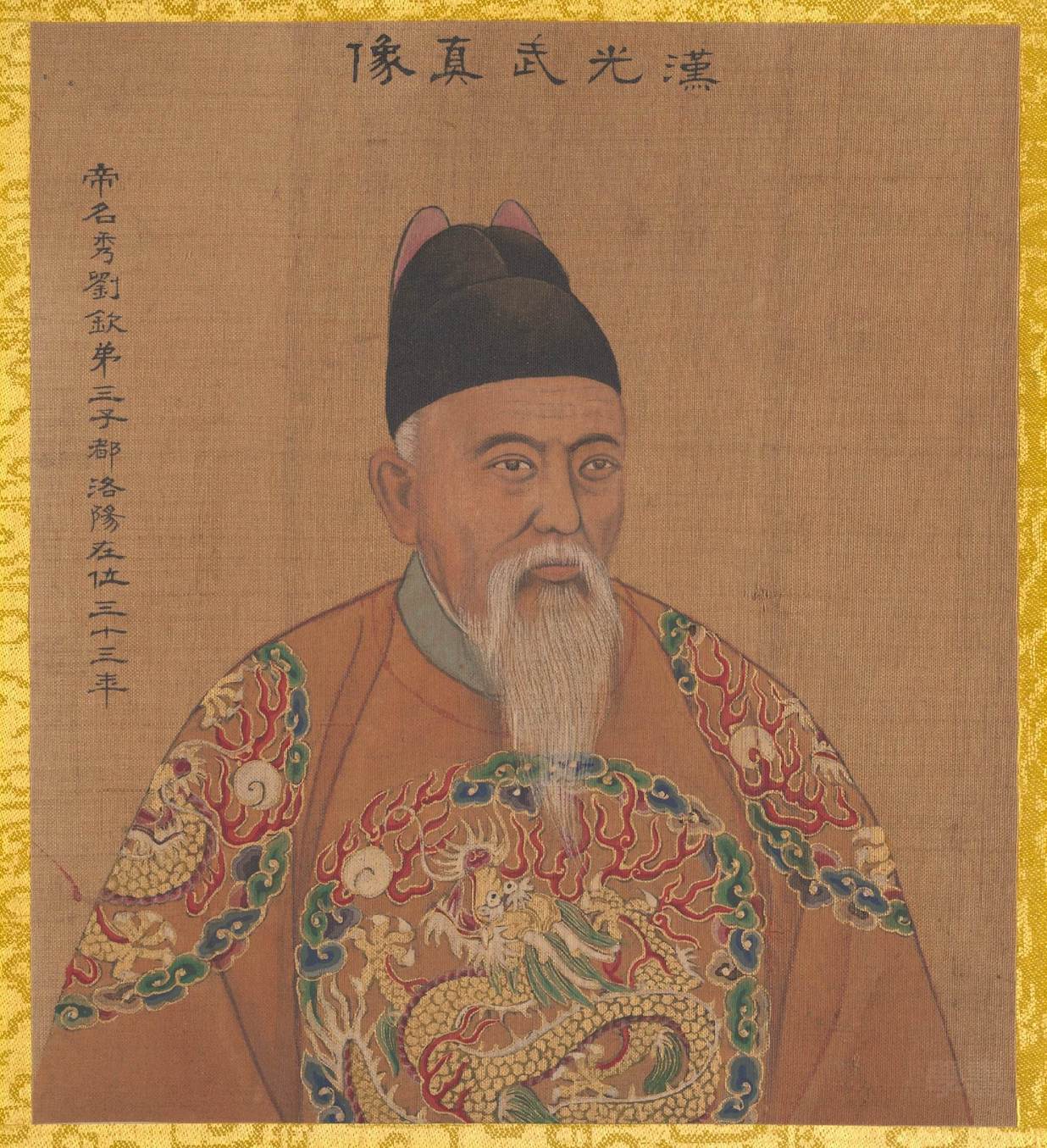
In modern times, the plant-based diet has become a trend and really started catching on in China around 2018. Was it economic recession? Global warming? Late-stage capitalism? Who knows. But a lot more people have become vegetarian or vegan in the last five years. From 2015 to 2020 alone, the value of the vegan food market in China has grown by 17 percent, and Shanghai is epicenter of the trend. Today, there are an estimated 50-70 million vegetarians in China, or about four percent of the population.
So go out! Eat vegetables! Maybe dairy products! Meats made from plants! Go against the trend and be pescetarian (eat some fish)! All of it!
The Lingo
The word “vegetarian” in Chinese (素食, su shi) is a generic term used to describe many different types of plant-based diets. The idea of a “plant-based diet” itself (植物性饮食, zhiwuxing yinshi) is an imported concept.
Make special note if you’re vegan, that, usually, if you declare yourself as a vegetarian, Chinese friends will assume you eat dairy and egg, and that you are an ovo-lacto vegetarian (蛋奶素, dan nai su). Strict veganism is only part of the serious Buddhist tradition, not common (yet) among secular people.
The vegan diet is called either chun su (纯素) or jing su (净素). The term also describes a particular vegan diet associated with Buddhism, wu wu xin (无五辛), which forbids animals and the “five pungent spices” — garlic and four types of onion, which are said to lead to anger (when raw) and passion (when cooked). All restaurants or products marked jing su are vegan-friendly.
Pescetarian (鱼素, yusu) is also an unusual dietary restriction in China. Because of an engrained impression about vegetarians all being Buddhist (who practice non-violence), being pescetarian can be unfathomable to some — fish are animals! Expect to face gentle interrogation if this is your diet.
There’s a special term in Chinese meaning “vegetarian next to the pot” (锅边素, guobian su) which is a vegetarian that is comfortable with eating plant-based ingredients from dishes cooked with meat. A lot of Chinese vegetarians follow this practice and don’t ask restaurants to make special arrangements for them.
Eating Out
From down-to-earth Buddhist canteens to lavish fine-dining with a four-figure bill, the options in Shanghai are super wide. Since about 2018, restaurants catering to vegans and vegetarians have been springing up all over the place and many big-name F&B businesses are reinventing traditional dishes to suit the tastes of health-conscious customers. Our list of vegetarian restaurants had 10 nominees in 2016; in 2020, we picked 20 and had to leave many off. We have a ton listed. It’s no longer challenging for people who eat plants to eat out in Shanghai, although pure vegan restaurants aren’t fully mainstream as we write this.
Vegan and Vegetarian
China has its own vegetarian cooking. Places like Godly, Vegetarian Lifestyle, Wu Guan Tang, Super Vegan, and Hui Yuan have been around for ages (Godly started in 1922) and are always great for revisits. They are old-style vegetarian restaurants with a Buddhist vibe and serve Chinese dishes that are typically made with meat, but replaced with meat-alikes. The Lakeside Veggies from Hangzhou, Gan Lu Lin, and Jiandan are contemporary adaptations. There’s also heritage eatery Chunfeng Songyue Lou, Dancing Dumplings, and Yun Lai Ji, doing vegan Shanghainese small eats like soup dumplings. We’ve written about some of them before.
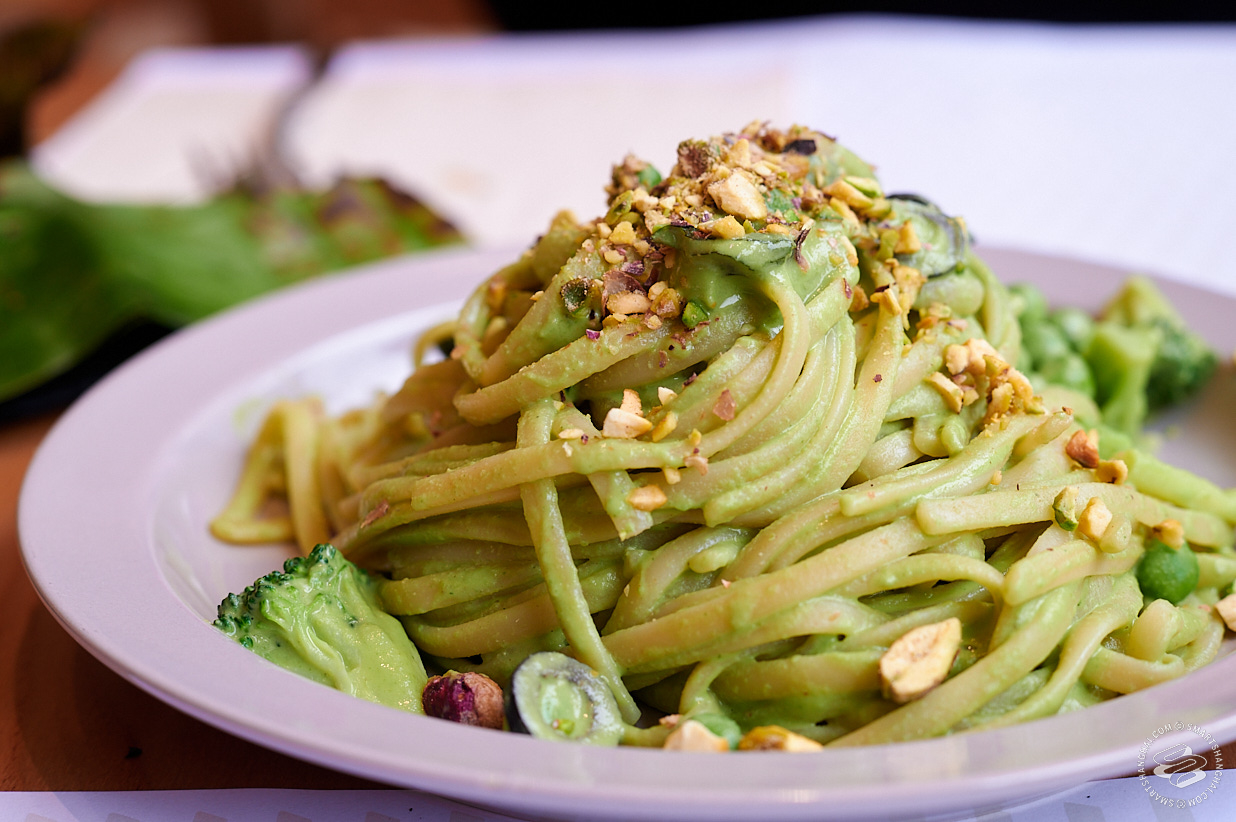
If Vegan, FineCafe, GreenVege, and Vege Good are the stylish, fusion version of these OG restaurants. They do soothing stir fries, warm bowls, noodles, and sandwiches. We’ve been to Vege Good , and found its calming vibe and Yunnan-influenced dishes quite nice .
Yan Ge Ge and Yi Ye Yi Shijie, are both vegetarian hotpot restaurants serving unique herbal soup bases. Chinese tea house Wu Wei She Tea and Veggie by Nanjing Xi Lu serve a vegan set meal for lunch and dinner. You can find vegan sushi at Maruyama.
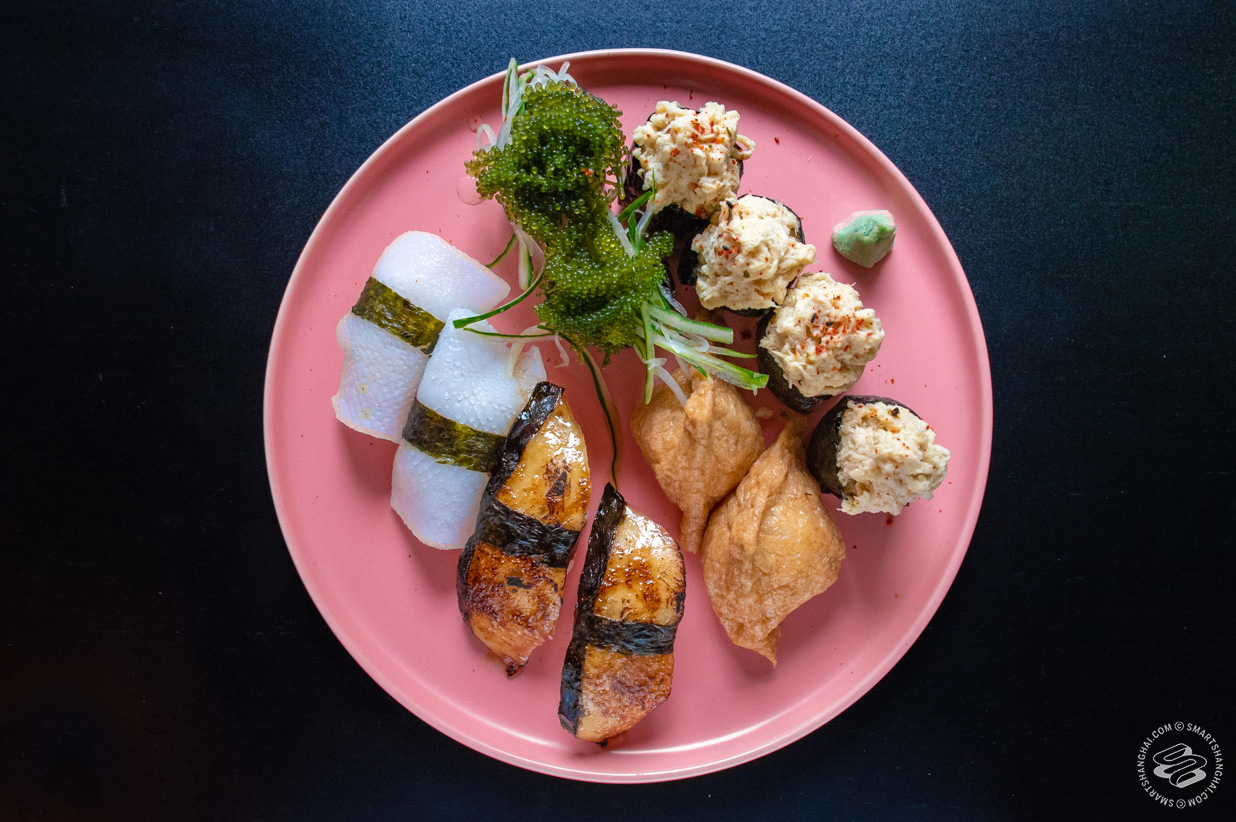
There are also a few modern, Western-style vegan restaurants in Shanghai. Places like Pure & Whole, Lizzy’s All Natural and Green Friday do things like salads, wraps, pastas, as well as smoothies and cleansing drinks. Eli’s and Brother’s Kebab have falafel, hummus and dips. DULi opened in summer 2020 with an interesting and delicious menu, and is always busy.
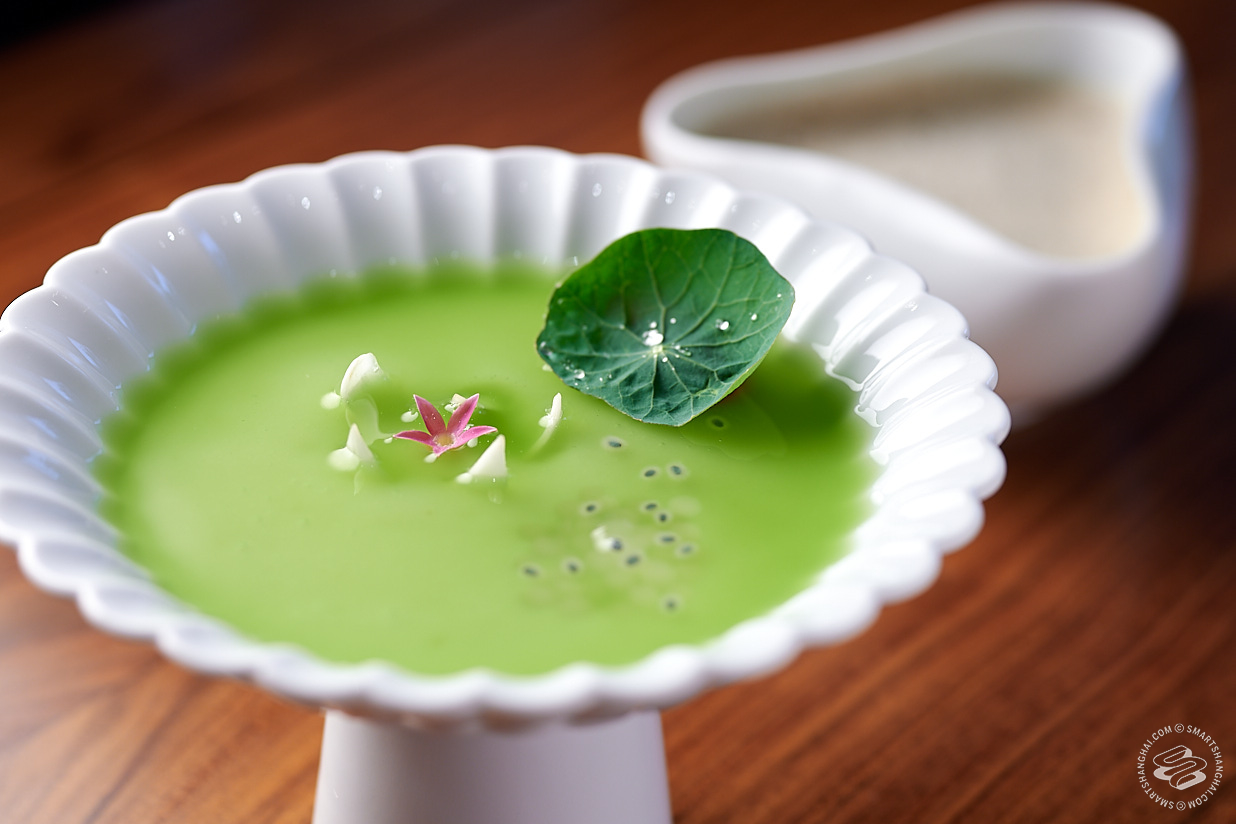
If money isn’t a bother, Shanghai has vegetarian fine dining. Fu He Hui has held a Michelin star since 2017. They do set menus that change seasonally, all vegan and very pricy. Canton Table at 3 on the Bund has a vegan tasting menu. L.Bodhi does fancy small plates in multiple courses at a venue decorated like a 14th-century French church. WUway Natural Food from Fujian filled in after Wu Jie closed doors.
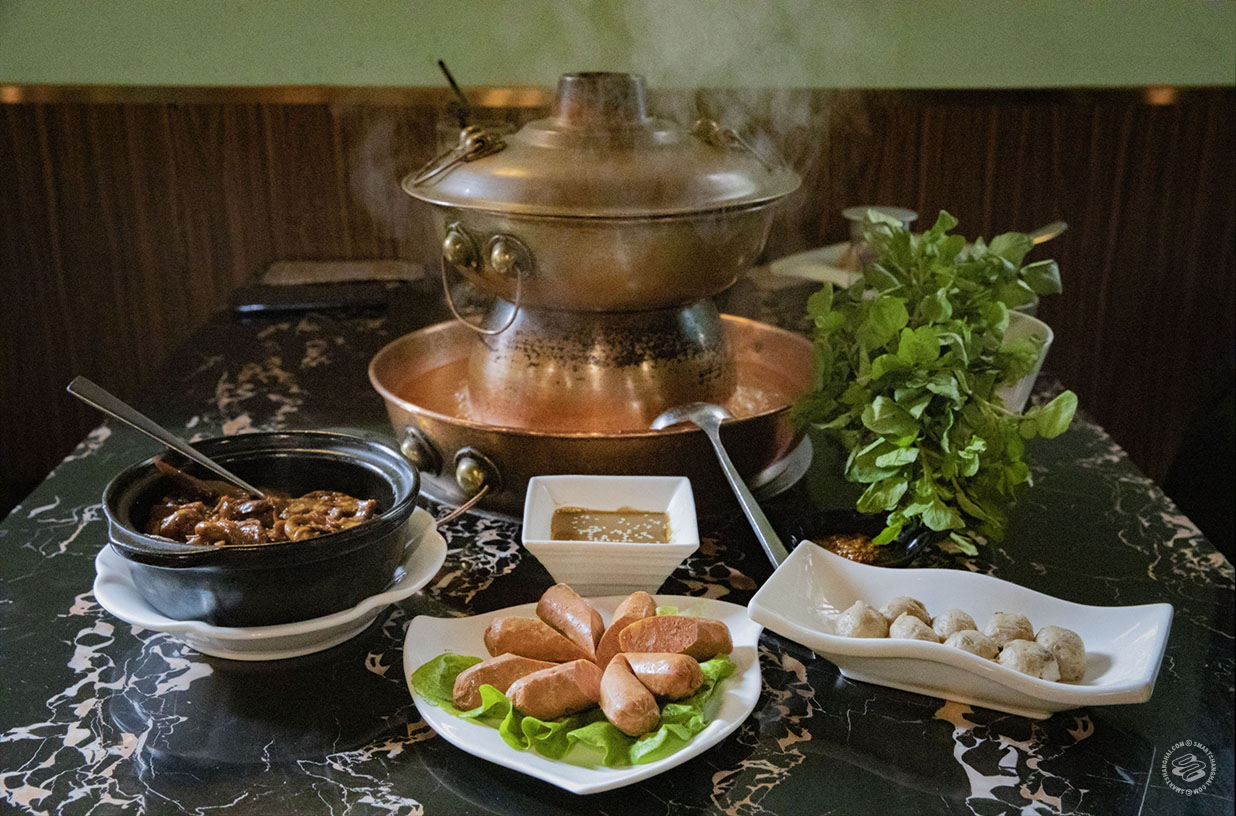
Vegan and Vegetarian Friendly
There are a ton.
If you’re not a strict vegan, you could dine comfortably by yourself or with carnivorous friends at some of the greatest Italian restaurants in the city. Indian restaurants all do delicious vegetable curries and shared plates. Almost every Mexican restaurant in the city has vegetarian or vegan dishes, and so do most Thai or Vietnamese restaurants. Bird and Egg, both serving flavorful vegetarian dishes, are highly spoken of by a vegetarian chef, and you can opt for vegan by asking them to swap the eggs for tofu.
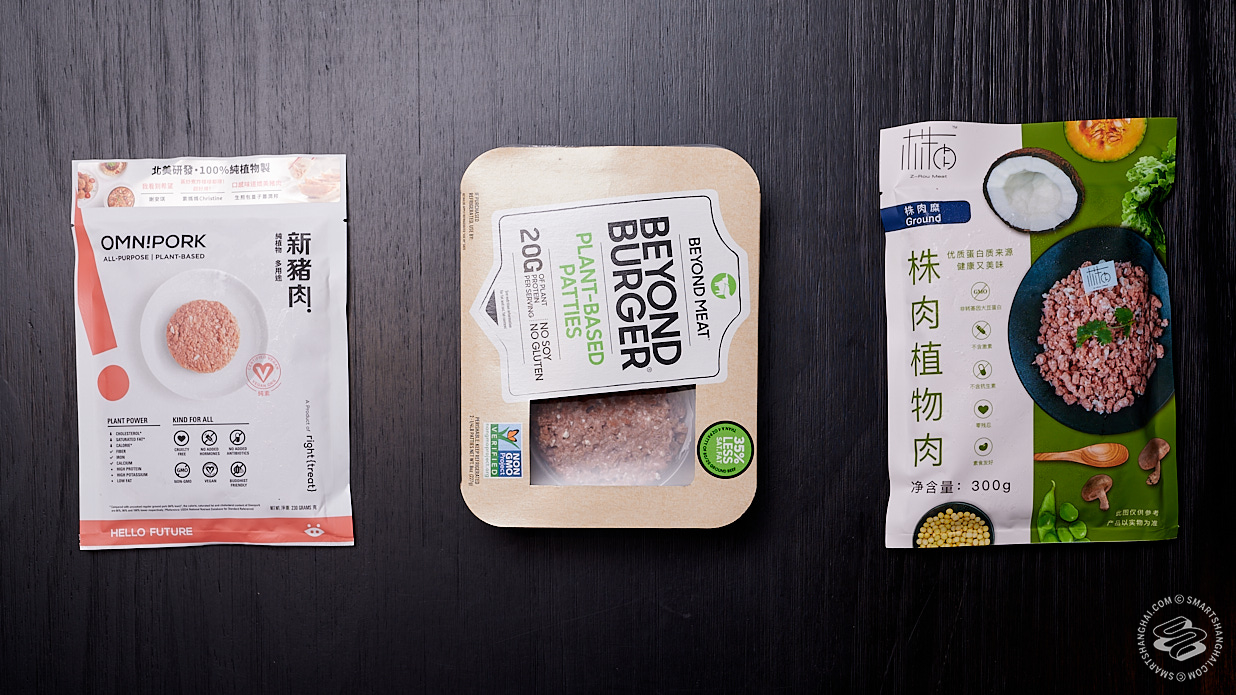
Fast food chains are also serving plant-based items. Charlie’s has a Beyond Meat burger, Shake Shack does a veggie patty, Beef & Liberty has vegetarian burgers, and the local burger chain, Dico’s, launched a Starfield plant-based meat patty in late 2020. KFC is said to be the next one. Pizza chain Homeslice has great vegetarian options and vegan cheese. Starbucks has several items in partnership with Beyond Meat when they first appeared in Shanghai. Even IKEA is now doing a vegan Swedish meatball. After Oatly was introduced to China in 2018, having oat milk as dairy substitute has become standardized. If you’re a coffee drinker, you could easily find a decent oat milk latte (燕麦拿铁, yan mai na tie) at almost any coffee stand with an extra charge.
Wagas and its subordinate chains, Lokal, Baker & Spice, and Funk & Kale, are everywhere in Shanghai, and you can find western-style, plant-based dishes even on-the-go. There’s Green & Safe for salads, pizzas, and organic groceries. Moka Bros, Maiya Rice Canteen, Pie Society, Hunter & Gatherer and Brut Eatery are well-received for a casual meal. Element Fresh is a reliable option, even if its vegetarian menu is small.
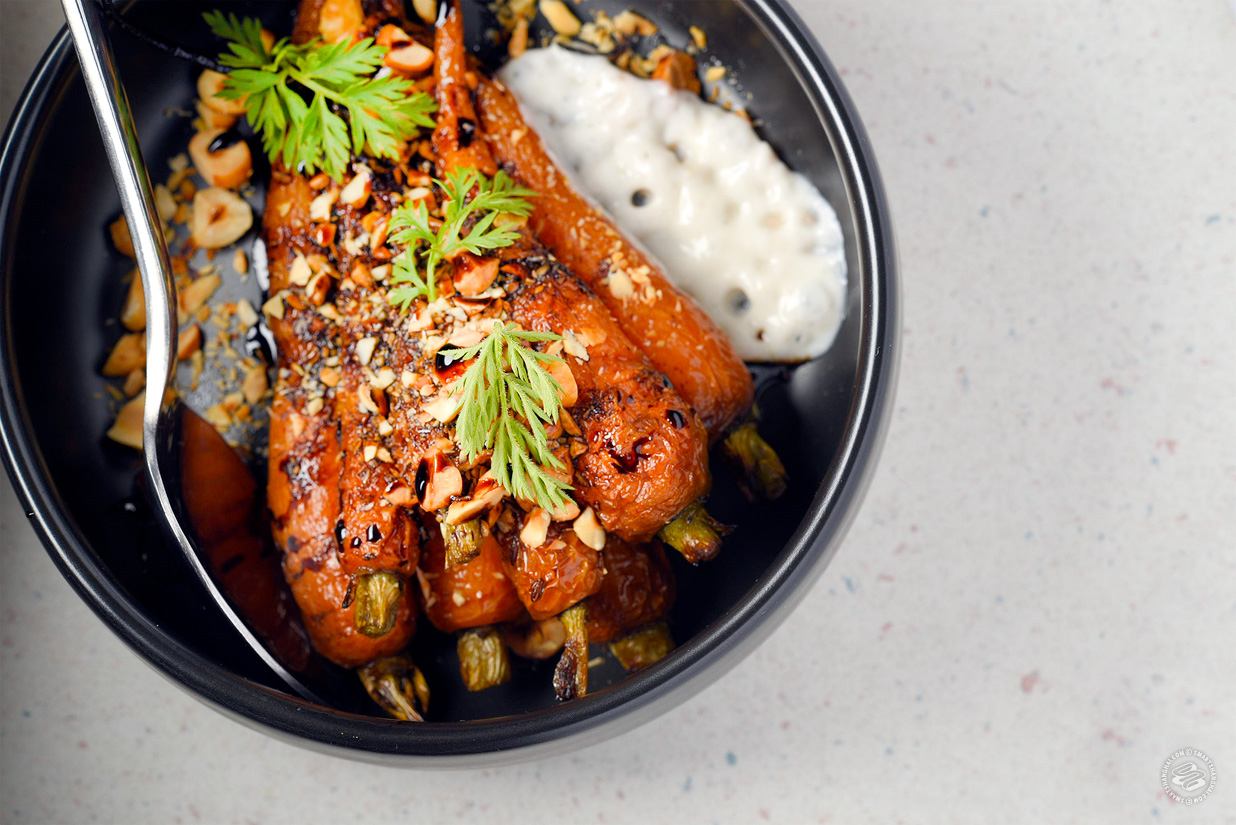
On the other hand, non-vegetarian Chinese restaurants provide a big range of flavorful options if you know how to order. The cooking is for the most part plant-based unless you go heavy on the meat dishes. If you accept being “next to the pot”, even better. Although it’s generally difficult to avoid meat broth, but for the stir fries you could notice the staff by saying: “不要放肉 (bu yao fang rou)”. The regional cuisines of Sichuan, Yunnan, Hunan, and Guizhou give vegetables rich and full-bodied flavors with spices and herbs. Start with Sichuan Citizen, Lotus Eatery, Lost Heaven, and Slurp!. Shanghai’s local cooking, ben bang cai, also has all types of cold dishes, noodles, and stir-fry that are vegetarian-friendly. We can’t possibly cover everything. Check our directory for 2000+ Chinese restaurants in Shanghai, or read our Essential Guide to dining.
Budget-Minded Choices
Keeping a plant-based diet isn’t that hard, but it’s harder on a budget.
Vegetarian canteens at Buddhist temples serve fresh, inexpensive dishes and are an experience in themselves. The most popular temple canteens in the city are Jendow, Jade Buddha Temple Su Zhai, and Longhua Su Zhai. There are also Ci Guang Su Shi and Guo Da Wang, near Shanghai’s other two temples. Hao Mi Dao by Jiangsu Lu, and Xin Lian Zhai by Wuning Lu do tasty, inexpensive (30-40rmb) vegan meals.
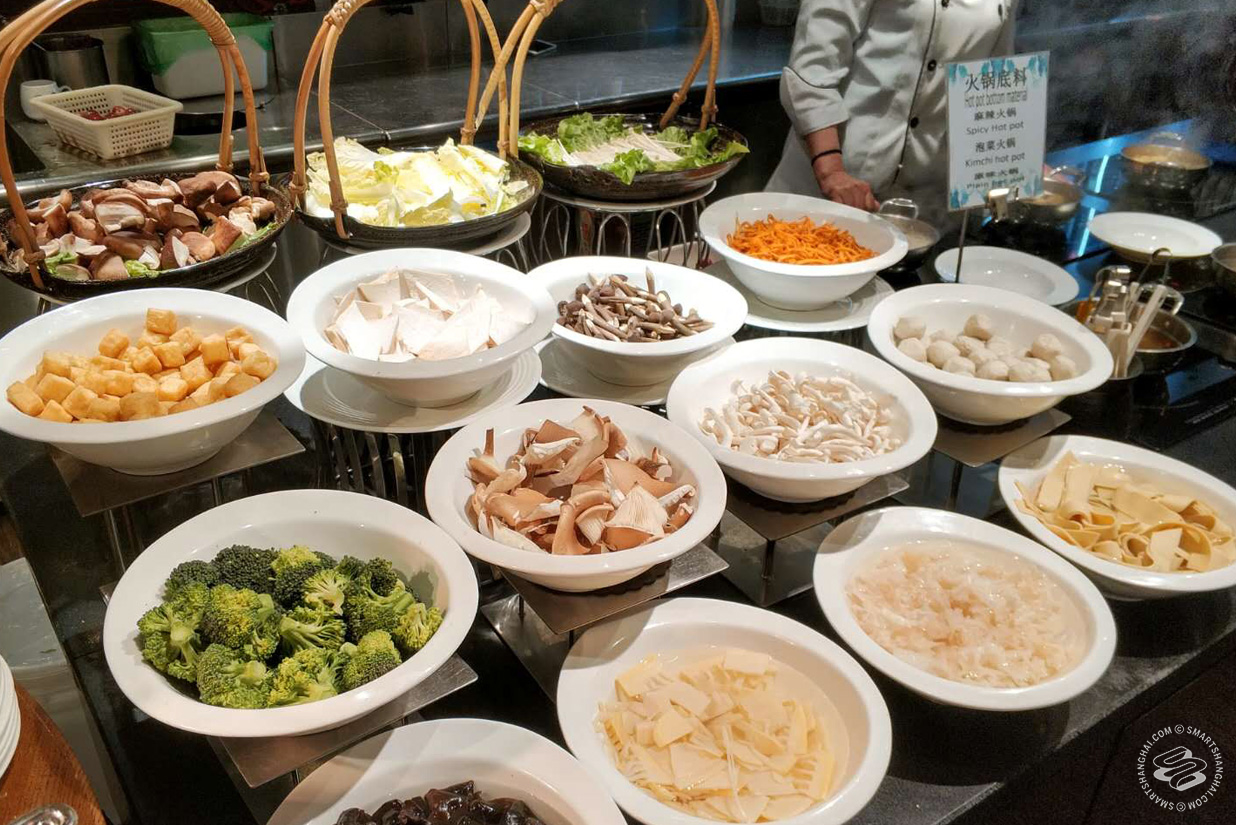
There are also vegan buffets at down-to-earth storefronts, often with an obvious Buddhist vibe. Su Man Xiang, a chain from Ningbo with three locations in downtown, charges less than 35rmb per person. Supper Health Veggie does a simple vegan buffet for 36rmb. Yi Su is pricier, with a lunch buffet at 88rmb.
Have It Delivered
Most restaurants mentioned above are either on Sherpa’s, Eleme or Meituan — or all three. Saucepan, Organic Kitchen, and Anna’s Bistro are popular vegetarian-friendly options. We’ve also covered two other ones in our lunch delivery article. Search for “素食” (su shi) in the delivery app.
Baked Goods and Sweets
Vegan bakeries are not common. Many specialty shops are either online only or prepared at private kitchens. Wow!Sugar, a WeChat store carrying all kinds of vegan bread, cakes and sweets, is perhaps the most popular. Strictly Cookies has vegan options. Lizzy’s All Natural does a small line of vegan cookies and bars. O’mills, although not a vegan bakery, has some vegan cakes and brownies. Papito Pancakes has many sweet crepes and one savory vegetarian option.
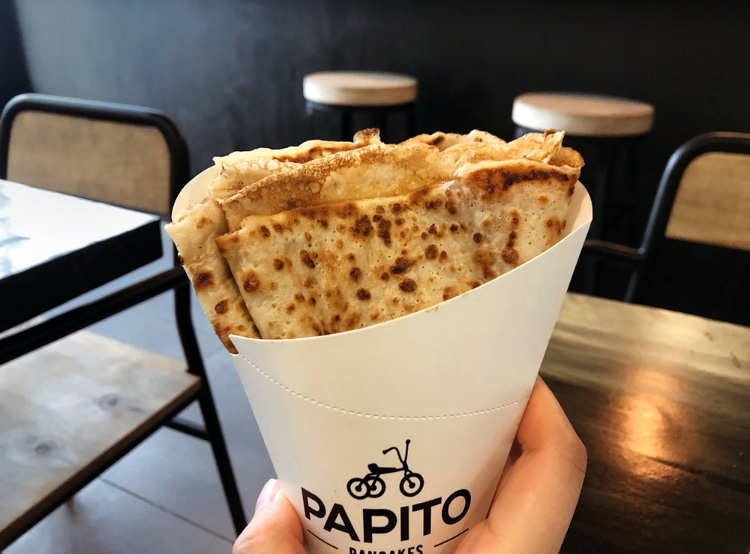
Grocery Shopping and Specialties
We’re not teaching you how to shop for groceries but here’s a few tips.
There’s no retail vegan cheese in Shanghai as of the end of 2020, but dairy substitutes are not hard-to-shop-for. The street corner Avocado Lady has oat milk and nut milk, as well as raw seeds, nuts, peas, and spices. Yeyo, a WeChat store which we’ve written about before, does coconut yogurt.
China is probably the best place in the world for tofu, but its fermented relative, tempeh (天贝 in Chinese), isn’t popular at all. Rusto Tempeh is a WeChat-only store, and as its name suggests, specializes in tempeh — a 250-gram bag is 28-32rmb. You can also get tempeh from Taobao for slightly less.
In fact, the almighty Taobao can satisfy all vegan dietary needs. According to vegetarians and vegans we spoke with, they commonly buy nutritional yeast (营养酵母), raw nuts, dates, dried jujube, and chickpeas from the site. All big-name plant-based meats are also available on Taobao - we’ve bought them before.

There are few online grocery shopping platforms in English that specialize in vegan products. GoVegan! (with the exclamation point!) is an online shop based in Guangdong that ships throughout China, selling mostly ready-to-eat vegan food and snacks. Miss Green, originally a vegan lifestyle media outlet, has an online shop that carries a range of local and imported vegan food products.
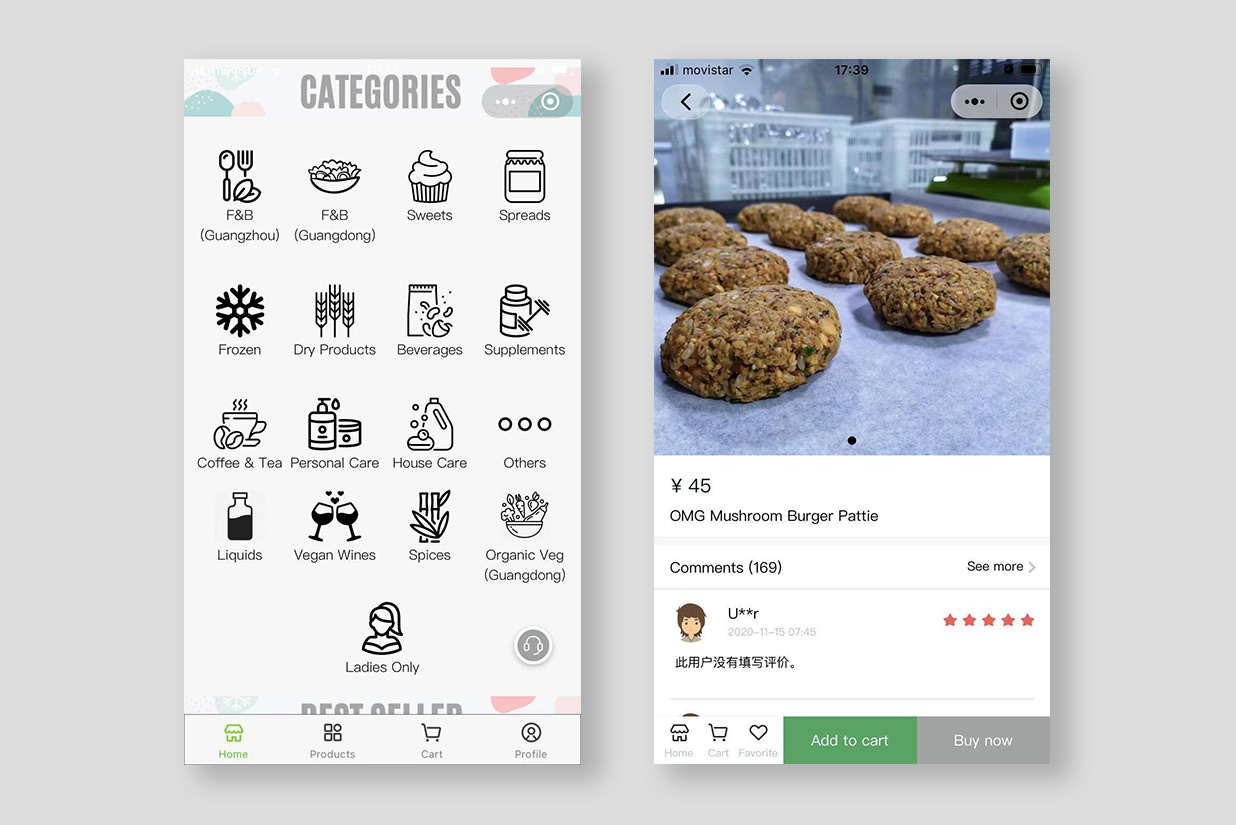
If your Chinese is up for it, consider the biggest (so far) Chinese vegan online grocery store: Brown Rice Home (糙米家 cao mi jia). It’s affiliated with Veg Planet (素食星球), the earliest Chinese-language vegan media, and they carry a lot of niche products. GoVegan (without exclamation point!), in Chinese, sells everything from bulk vegan ice cream and mock “fish” to vegan skincare and home products. Green Common, a company that launched in November 2019, sells imported vegan products on Tmall and its own WeChat store.
Keep Yourself Updated
Finding yourself a community is crucial. You get to participate in social gatherings and have a place to be active in the plant-based movement. In modern China, that means one thing: WeChat groups. They are based on invitation, and you need to know somebody who’s already in one. Kind of like country clubs — you need to get in the “circle” first. For now, there’s a semi-open group called Vegan Lifestyle Connection run by DeeDee (WeChat ID: deedee_8213), who used to work in food retail. Add her on WeChat to get in. Vegans of Shanghai, or VoS, as they call themselves, have always been active in the community. They have recently shifted focus into building a vegan media platform, but they still run a WeChat group. Contact Monica (WeChat ID: Monica201666) to get in.
Sometimes restaurants will have their own WeChat groups for announcing news and community events. Two active hosts are DULi and Green Friday — ask their staff about how to join.
There’s also Dao Foods International, an incubator specifically supporting plant-based food and protein start-ups. They host events, talks, and entrepreneurship boot camps, with detailed info on their WeChat account: 道夫子食品 (daofuzi shipin).
WeChat accounts are where most people write and share. There are plenty on plant-based diets, and they are bilingual — yea!

Seeds of Change (WeChat ID: seedsofchange) writes about health-conscious living and hosts events. The account is run by Green Initiatives, a non-profit organization that focuses on environmental sustainability.
Miss Green (WeChat ID: missgreensh), mentioned above for their grocery shopping platform, writes about plant-based diets and sustainable living. Most of their articles are bilingual.
Kungfu Chopstick (WeChat ID: KungfuChopstick) is run by an avid chef who’s also working as the consulting chef of Green Friday. She writes about Chinese plant-based cooking and sells her own vegan baked goods. Most articles are in English.
植本食薏 (zhi ben shi yi), writes about vegan recipes and plant-based lifestyle in general. Yi-Wen, the lady who started the project, also hosts occasional cooking classes. The articles are bilingual but mostly in Chinese. Search their Chinese account name in WeChat.
Own What You Eat (WeChat ID: OwnWhatYouEat) features articles about healthy eating and conscious consumption and is directed by Cristina Ng, a plant-based movement advocate. Their articles are bilingual.
xiaobuVEGAN (WeChat ID: XiaobuVEGAN), formerly “PBC” (short for Plant-Based Consulting), is a consulting business by the former Vegans of Shanghai group. They write about veganism, plant-based diets, and vegan-related news in Shanghai.
This is a place for show life about china, If these articles help you life better in china, Welcome to share this website to your friends, Or you can post questions about china life in FAQ, We will help you to find the right answer.

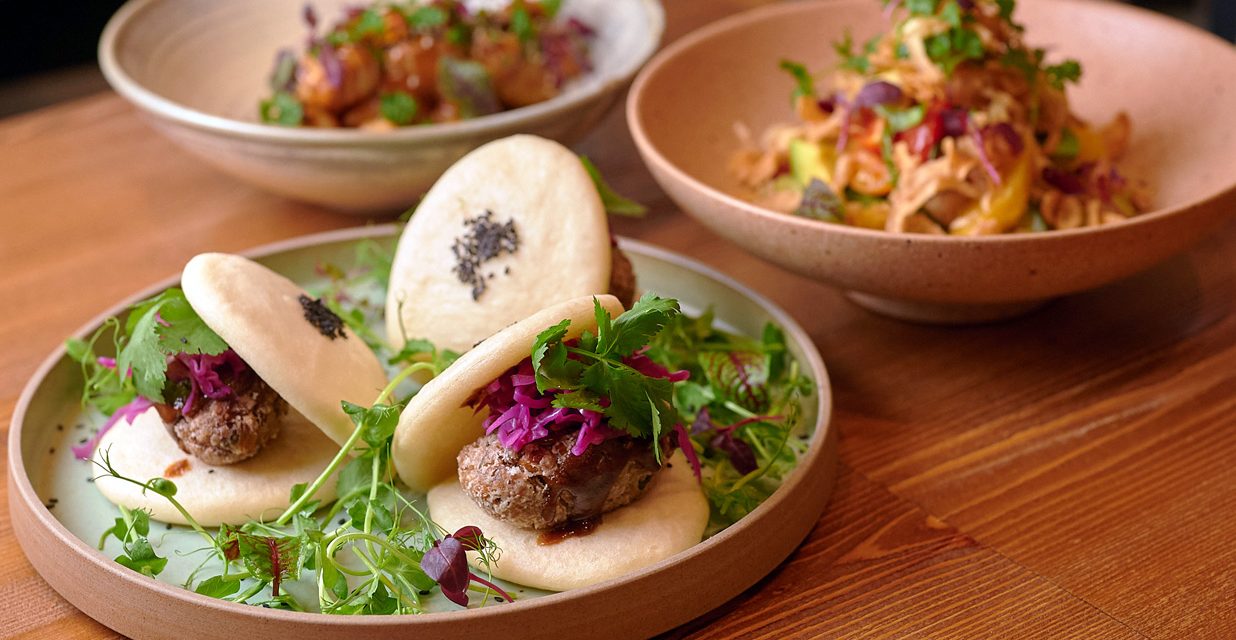
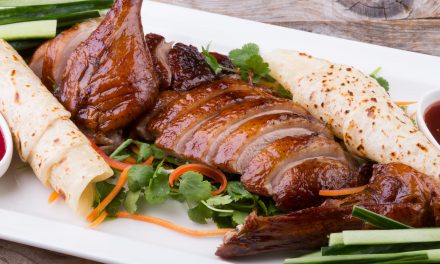
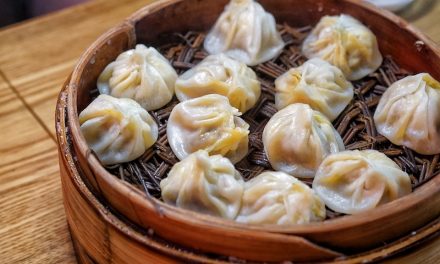


Recent Comments